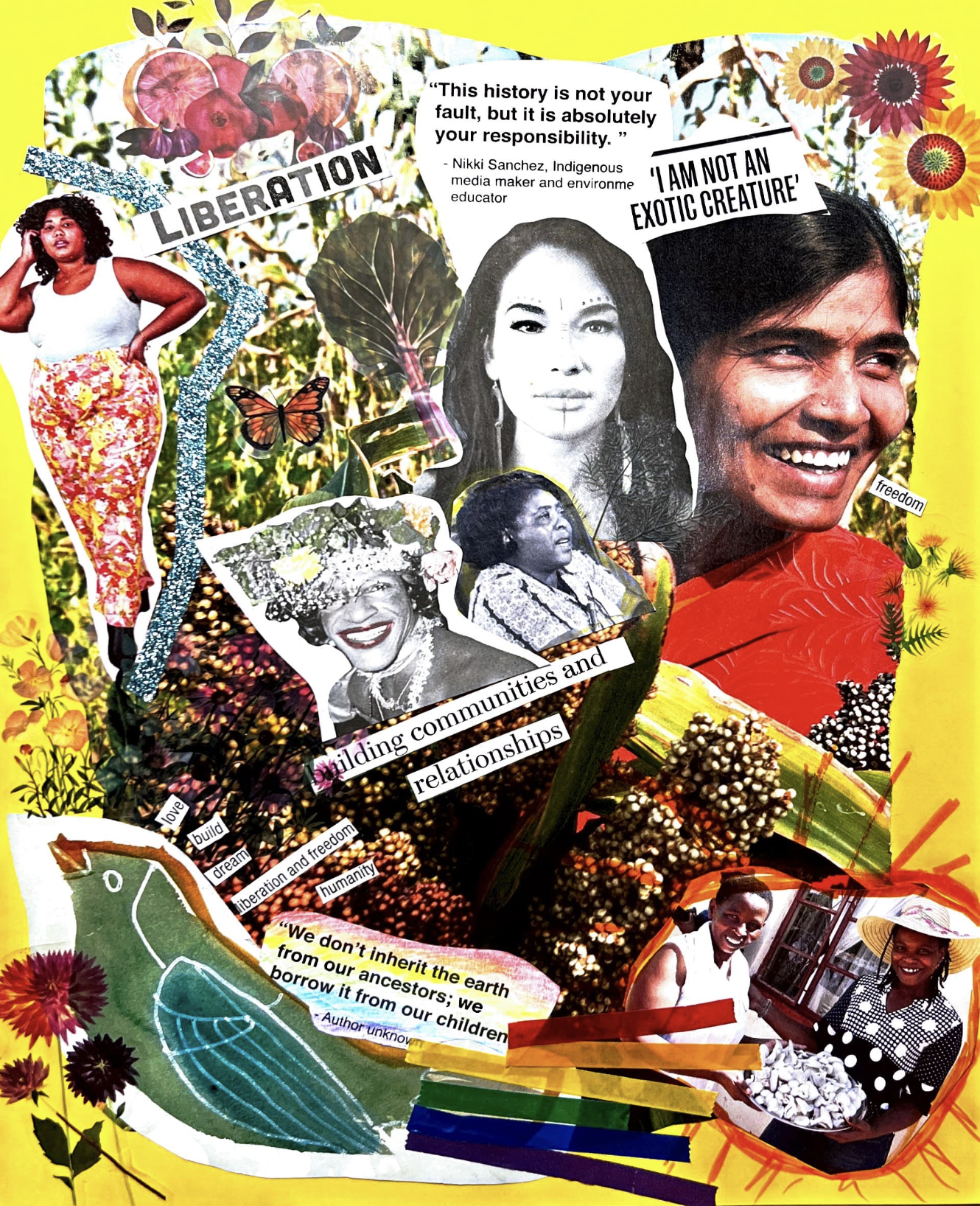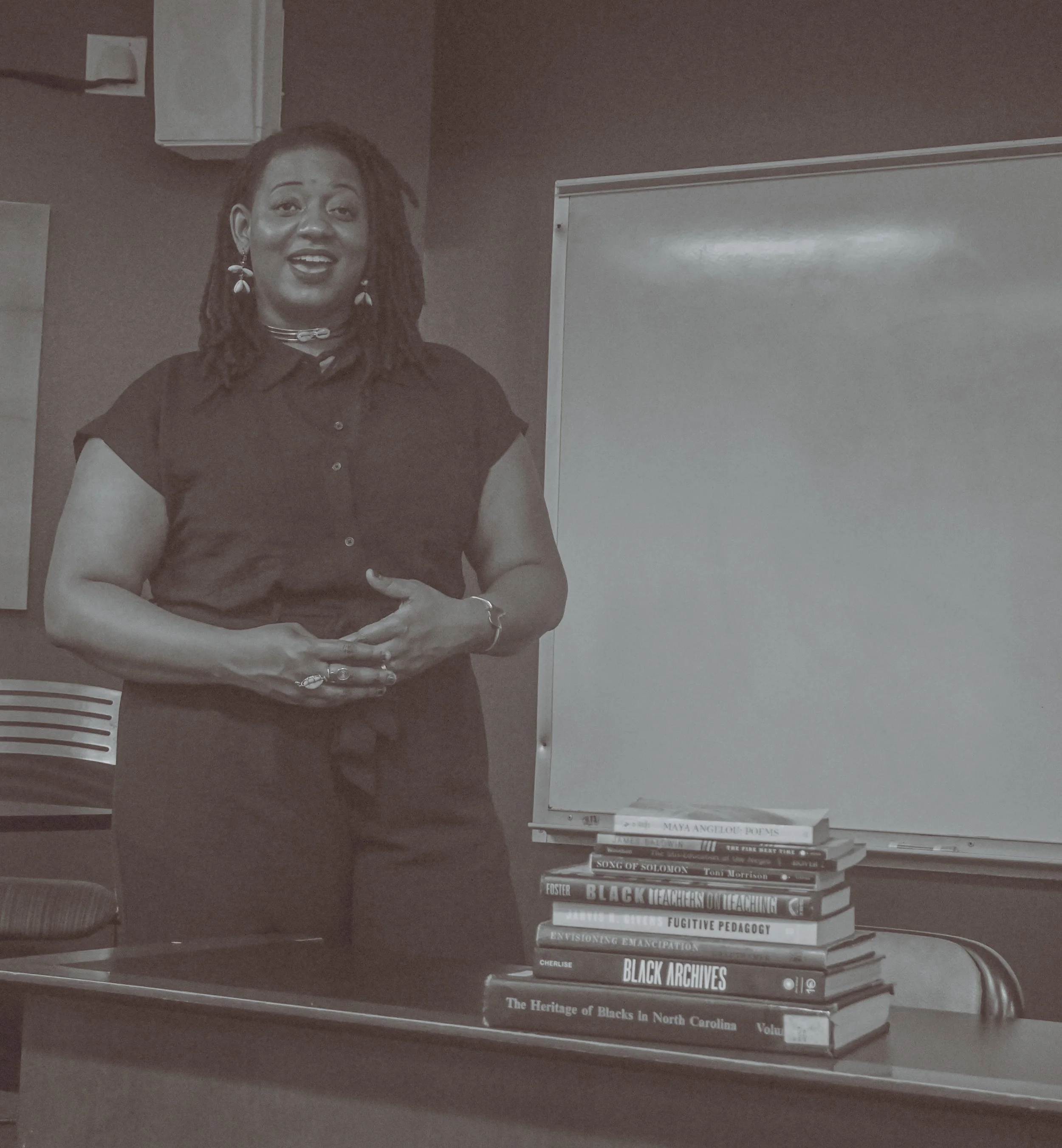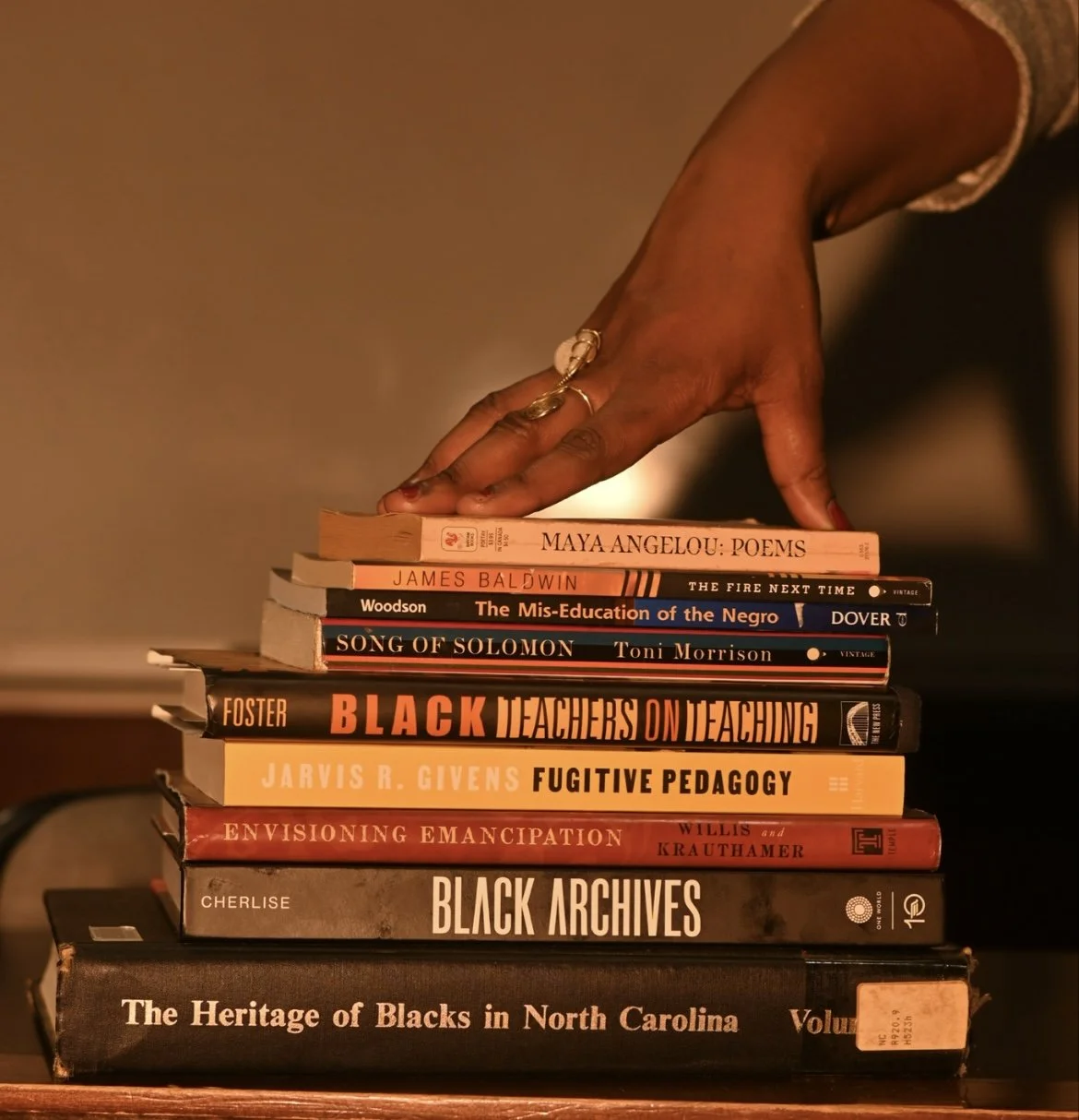I come from a lineage of educators who co-created teaching and learning environments that center our agency, curiosity, and critical consciousness. As a commitment to their legacy, my work seeks to co-create spaces where we feel empowered to question, analyze, and transform our communities.
bell hooks deeply informs my pedagogical values and beliefs:
Teaching as an Act of Liberation:
Rooted in the belief that education is a pathway to freedom, I believe that teaching and learning can dismantle oppressive systems and empower us to question, imagine, and create new possibilities.
Engaged Pedagogy:
Ancestor bell hooks calls for reciprocal learning, where both teacher and student are active participants. I value vulnerability, authenticity, and the integration of mind, body, and spirit in the learning process, creating a space where everyone, especially Black queer, trans, and neurodivergent folks thrive at the center.
Collaboration & Interdependence:
Learning is communal. Together, we can tend to our relationships, build trust, and create opportunities for shared knowledge co-creation.
Care Work:
Grounded in traditions of care exemplified by the southern Black intergenerational communities that raised me, my approach to education is relational and rooted in love, respect, and compassion. I believe that education should not only lead to intellectual growth but also emotional well-being and community accountability.
A Few Methods of Engagement
-
Black Memory Work serves as a transformative pedagogical approach by centering the lived experiences, histories, and cultural practices of Our People. My approaches emphasize oral histories, archival research, and collective memory as tools to interrogate dominant narratives and highlight the resilience, creativity, and contributions of Black communities.
-
Zines intentionally de-prioritize perfection and mastery, while centering expression and creativity. Black, Queer, Trans, and PoC communities have used zines and self-publication to amplify our voices for generations, and engaging learners through that lineage is a powerful tool. I utilize zine-making as methods for storytelling, archiving, oral history preservation, community organizing, and knowledge-sharing.
-
Play and embodied joy are deeply important elements of teaching and learning. Utilizing game-based learning generates connection, collaboration, critical thinking, and delight. In my work with youth, I have created collaborative storytelling games for middle school students to unpack topics like Settler Colonialism, Capitalism, Colonization, and Resistance.
-
I am paying attention to the ways in which cultural belonging, cultural affirmation, and cultural responsiveness improve teacher-student relationships, classroom engagement and quality of life for learners and educators. My approach to curriculum building begins with three foundational questions: What liberatory learning spaces do you want to grow? What tools do you need to actualize this space? And finally, what knowledges can we co-create that will get us closer to our freedom dreams?


